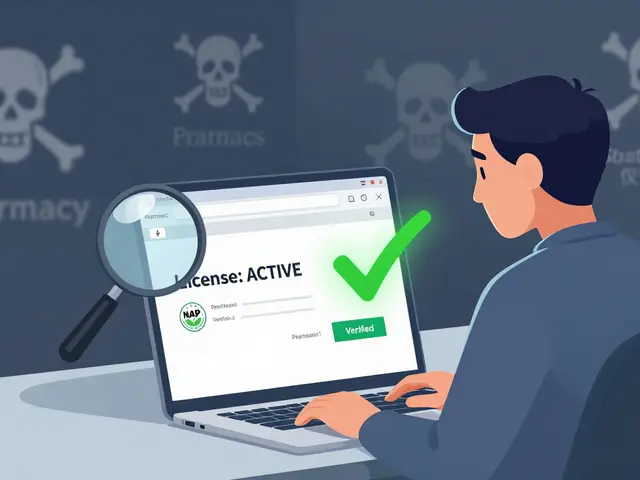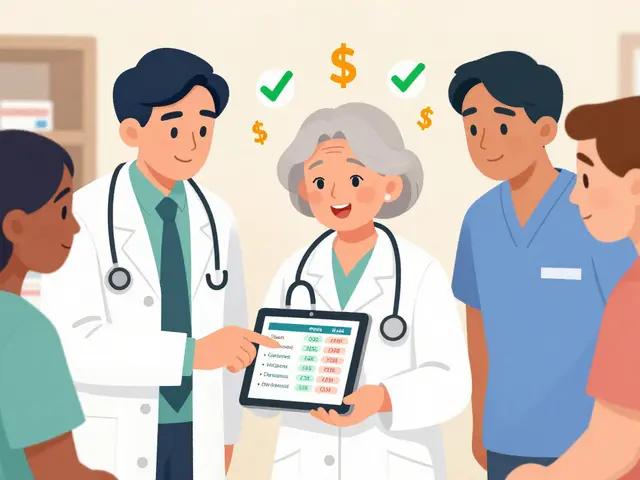Vitamin C: Uses, Dosage and Buying Online Safely
Vitamin C is a water-soluble vitamin that supports the immune system, helps build collagen, and boosts iron absorption. You get vitamin C from citrus fruits, bell peppers, strawberries, kiwi, and broccoli. If you struggle to eat enough fresh produce, a supplement can fill the gap.
Recommended daily amounts are around 90 mg for men and 75 mg for women, with smokers advised to add about 35 mg. Many standard multivitamins provide this. Single supplements commonly range from 100 mg to 1000 mg per dose.
Can you take big doses to prevent illness? Short courses of moderate extra vitamin C may slightly shorten colds for some people, but very high daily doses over 1000 to 2000 mg usually cause stomach upset and may increase kidney stone risk in susceptible people. The generally accepted upper limit for adults is 2000 mg per day.
Deficiency signs include easy bruising, slow wound healing, bleeding gums, and tiredness. Severe deficiency causes scurvy, which is rare but still possible with very poor diets.
Forms and timing
Supplements come as ascorbic acid, buffered forms like sodium or calcium ascorbate, chewables, powders, and liposomal formulas. Ascorbic acid is effective and affordable. Buffered options are gentler on a sensitive stomach. Taking vitamin C with meals lowers stomach discomfort and helps the body absorb iron from plant foods.
Interactions and safety
Vitamin C increases iron absorption, which helps people with iron deficiency but can be harmful if you have iron overload disorders like hemochromatosis. High doses can affect some lab tests and may interact with certain cancer treatments. People with kidney disease or a history of oxalate stones should check with a healthcare provider before taking large doses. Always tell your doctor or pharmacist about supplements you use.
Buying vitamin C online
Look for a licensed pharmacy or reputable retailer. Check for clear contact details, readable ingredient lists, and a manufacturing or expiry date on the label. Avoid sellers who make bold disease cure claims or who sell prescription drugs without requiring a prescription. Read recent customer reviews and choose products with third-party testing when possible.
Storage and practical tips
Store tablets and powders in a cool, dry place and reseal jars after use. For powders, follow the scoop directions and use within the recommended time. If you want a simple change, add a bell pepper or an orange to your daily meals—food sources give other nutrients that supplements do not.
Pregnant and breastfeeding people, older adults, and those with chronic illnesses should talk to their healthcare team before starting any supplement. Children need smaller doses; follow pediatric guidance. Athletes often increase vitamin needs with heavy training, but food first is still best. Look for brands that follow good manufacturing practices and offer third-party testing stamps such as USP or NSF. Keep receipts and batch numbers in case of recalls. Ask your pharmacist about coupons and lower-cost options today.
Questions? Your pharmacist can suggest a dose or product that fits your needs.

Roasted vs. Boiled Chestnuts: Vitamin C and Resistant Starch Benefits Compared
Ever wondered whether roasted or boiled chestnuts are healthier? This detailed breakdown explores how each preparation method affects vitamin C and resistant starch content, with a focus on nutrient retention. Get practical tips, scientific facts, and new ideas for using this classic autumn snack. You'll learn how cooking choices change its nutritional value and get handy ways to maximize its health benefits. If you care about getting the most out of your food, this guide makes it easy and fun to decide how to cook chestnuts.
view more




